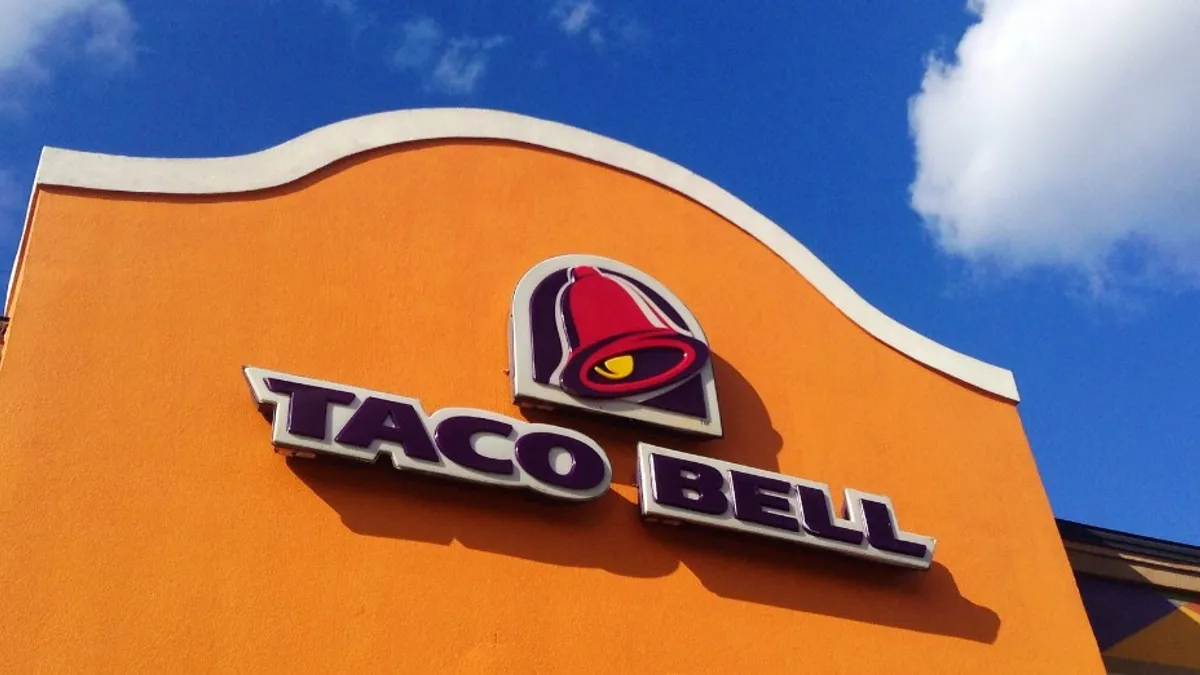Dive Brief:
- Two Taco Bell assistant general managers alleged in a putative class action lawsuit that the company operating their restaurants wrongfully withheld overtime pay by misclassifying them as exempt under the Fair Labor Standards Act (FLSA) (Davis, et al. v. Charter Foods, Inc., et al. No. 2:20-cv-159 (E.D. Tenn. July 21, 2020)).
- The assistant general manager position required workers to complete "housekeeping, customer service, cash handling, food preparation, and other non-exempt work," according to the lawsuit.
- In addition to misclassifying the workers, the company required the workers to perform "off-the-clock" work, removed "on-the-clock" hours from payroll, or both, the plaintiffs alleged. The off-the-clock work commonly added up to 15 hours on top of their required 50 each week, the lawsuit said.
Dive Insight:
To determine whether workers are exempt from the FLSA's requirement that employees be paid time-and-one-half for hours worked beyond 40 in a workweek, employers must consider salaries and job duties, sources previously told HR Dive.
All of the FLSA's overtime exemptions, aside from the outside sales exemption, require employees to make more than $684 per week. Once the salary threshold is met, the employee's job duties are considered. The required job duties vary, depending on the exemption.
Overtime violations are a frequent topic of wage and hour litigation, and they often generate expensive settlements. A Panera Bread operator, for example, recently agreed to pay $4.6 million to settle a class action lawsuit alleging assistant managers were improperly classified as exempt from overtime pay.
Panera also settled a class action lawsuit in Washington, D.C., last year for almost $2 million. But these issues aren't unique to Panera — wage lawsuits are among the most common in the restaurant industry. Jimmy John's and its franchisees were slapped with an overtime lawsuit in 2018, and so was Pret A Manger. The latter chain's suit followed a 2014 wage suit over back wages and overtime pay, and the company was required to pay $875,000 to employees at its 33 New York City locations for price shaving.
And when it comes to franchises, the question of joint employment remains an important one. In December 2019, the National Labor Relations Board (NLRB) absolved McDonald's from responsibility as a joint employer for labor violations brought to light in 2012 by "Fight for $15" and other labor groups. This ruling will likely insulate other restaurants from paying for their operators' mistakes in the future, which is a boon for major chains but could leave employees vulnerable.
This February, the NLRB put into place a rule stating that an entity may be considered a joint employer of another employer's employees only if it possesses and exercises substantial direct and immediate control over the employees' essential terms of employment such as wages, benefits, hours of work, hiring, discharge, discipline, supervision and direction.
The U.S. Department of Labor (DOL) also limited joint employer liability under FLSA earlier this year. It adopted a "four-factor balancing test" while also clarifying that an employee's "economic dependence" on an employer does not determine whether it is a joint employer.










